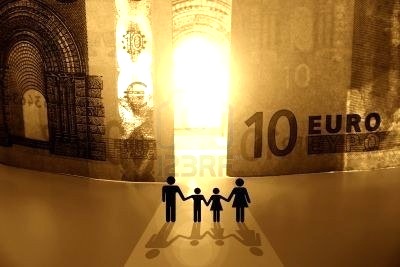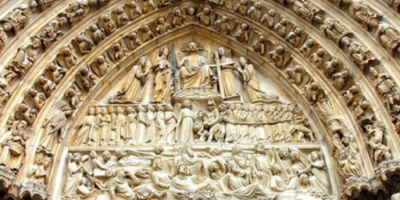 A good thing about crises is that they force us back to essential questions. They compel us to rethink our priorities, retrace our assumptions and re-examine our foundations.
A good thing about crises is that they force us back to essential questions. They compel us to rethink our priorities, retrace our assumptions and re-examine our foundations.
So a serious multi-fronted crisis may be exactly what Europe has needed in her search for her soul. When a secular leftist Dutch magazine takes a serious look at economics as religion, maybe it is a sign that at least some people are soul-searching.
‘Mammon is dead, and we have killed him!’ So read a headline in a recent issue of De Groene Amsterdammer, posing the question, can economists learn from theology?The article began with a familiar sounding parable: Have you not heard of that mad-man who took a bar of gold into an electronic exchange, ran onto the trading floor, and cried incessantly, “I seek Mammon! I seek Mammon!”
Paraphrasing Nietzsche’s madman who declared that man had killed God, the parable continued: As many of those people who do not believe in Mammon were standing around just then, he provoked much laughter. “Has he been sold?” asked one. “Has he gone bankrupt?” asked another. Is he in the bar? Is he in the gentleman’s club? Has he gone to China? An offshore tax haven?
Thus they yelled and laughed. The madman jumped into their midst and pierced them with his eyes. “Whither is Mammon?” he cried. “I will tell you. We have killed him–you and I. All of us are his murderers.
But how did we do this? How could we drink up the great sea of wealth? Who gave us the sponge to wipe clean all the ledgers? What were we doing when we unchained these liabilities from their assets? Whither are we seeking now? Away from all assets? Are we not plunging continually?
Faith
This parable-paraphrase came originally from an article in a theology journal, written by an English theologian and philosopher. Philip Goodchild, author of the book, Theology of Money (2007) is one of a growing group of people viewing economics through theological eyes, DGA tells its readers. The article also quotes Tomás Sedláçek (Czech Republic) and Bob Goudzwaard (Netherlands), both believers whom I have met with in recent months.
British atheist-philosopher Simon Critchley concurs with the believers, saying, ‘Capitalism is much more than an ideology. We see ourselves as modern people without superstition, but capitalism is a faith. The economic crisis is a faith-crisis. Money, at the core, is a trust issue. Not for nothing did the Romans sometimes have their goddess Fides, ‘faith’, on their money. Money is a question of faith.’
Critchley knowledges the truth of Jesus’ claim that money can be a god. Financial markets run on our reverence for money, and that’s how our whole economic order gets its religious structure, he observes, adding: ‘It’s strange that we rarely reflect on this.’
This secular magazine reminded its largely biblically-illiterate readership how that, twenty centuries years ago, Jesus spoke the words that even his followers sometimes found hard to digest: ‘You can’t serve two masters. You can’t serve God and Mammon.’
Mammon–a word that can mean money, securities and assets–is an idol claiming the throne and making us blind. How? Traditional values like charity are devalued in a money-based society, and traditional vices like greed and covetousness are exalted. Money could not put a price on love, nature or solidarity; it was materialistically focussed, and so influenced our view of life and shaped our society, the article continued.
Cult
These voices are not all new. But when things seem to be ticking along fine, or we believe momentary setbacks will be corrected by some invisible hand, such voices are drowned out by the utterances of the likes of Friedman (economics is value-free) and Keynes (greed and usury are necessary evils). Back in 1921, Walter Benjamin wrote in Capitalism as Religion that capitalism was the cult of debt. ‘Credit’ came from credo–I believe; ‘debt’ also meant sin and guilt in various languages. Today we can recognise central bankers as high priests of this cult, causing the markets to plunge with one wrong word.
For decades Goudzwaard has warned that our declared means (economic expansion) to our ends (peace, prosperity and well-being) had itself become the end to which everything was being sacrificed.
Goodchild cautioned that debt could only lead to devaluation, inflation or bankruptcy. ‘Mammon is dead. The crisis has unmasked Mammon. But the people don’t want to believe it. We are trying to keep a dying patient alive.’
Sedláçek points to the Jubilee year in which all debts were cancelled. The law demanded debt to be paid; Jubilee and forgiveness didn’t make sense in Jesus’ time either. But love takes us higher than the law, he tells the secular readers.
Till next week,
Jeff Fountain
Till next week,


The current crisis represents an opportunity to redifine business and economic structures based on the Law of Love. The objective is to restore equitable balance from producers to consumers who share similar values. Much work is needed here but the near-collapse of our current realities open unprecedented opportunities.